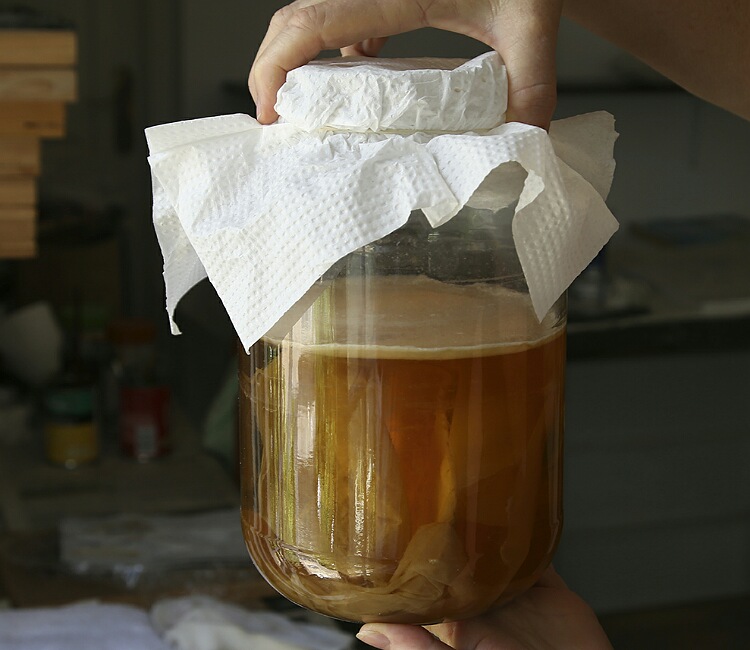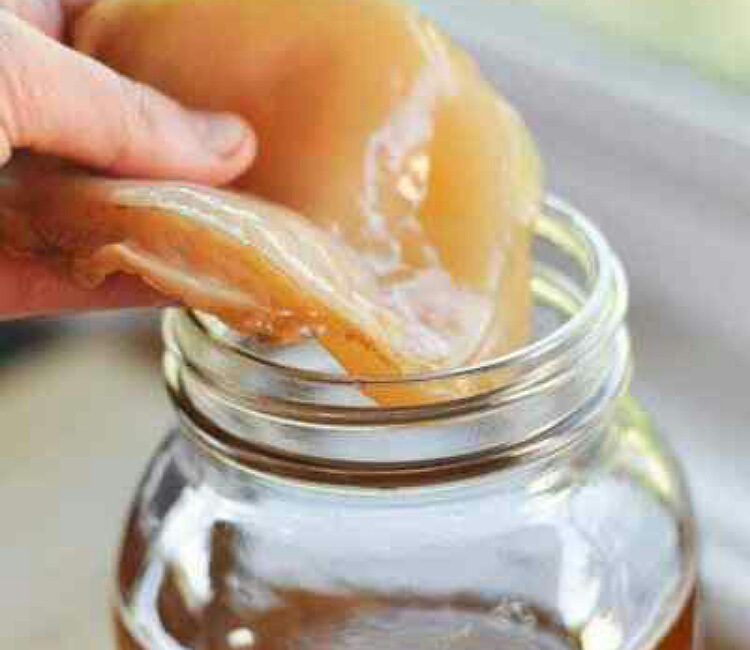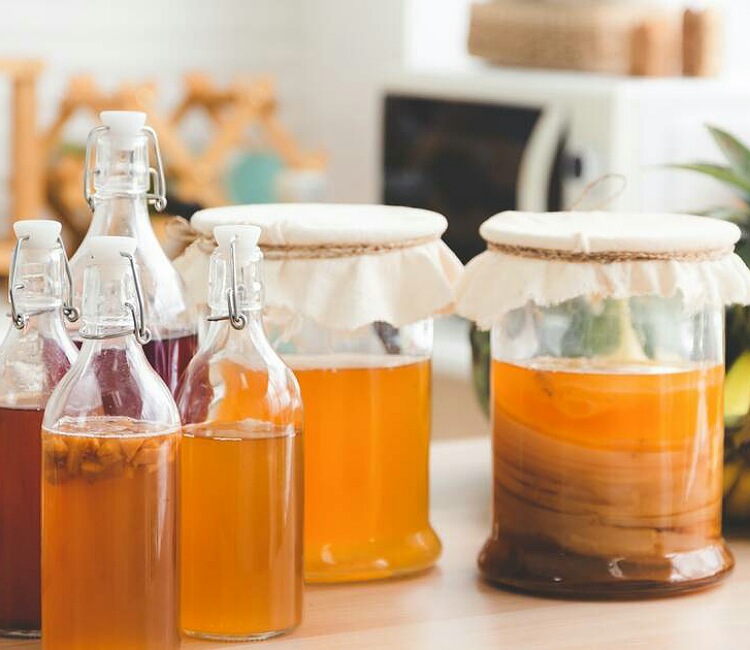Kombucha is a fermented and lightly effervescent black tea with sugar. There are some health benefit claims on it. But it also can cause some side effects to the drinker. Know all about this drink here.
Kombucha: the history and ingredients
Kombucha finds mention as early as 221 BC in the Chinese history literature. During the Qin dynasty rule there, people used it as an energizing and detoxifying agent. The exact location of origin is the Bohai Sea region of China. It found a way to Russia and from there spread to Europe. In the USA, its popularity rose in the early 21st century. It has an alcohol content of less than 0.5%. Therefore, restaurants and pubs sell it as an alternative to beers and other alcoholic drinks.

It is made by mixing tea (black, green, white or red) with sugar and symbiotic culture of bacteria and yeast (SCOBY). This is allowed to ferment for 7 to 14 days at room temperature to yield the final product. It has some alcohol and vinegar along with B vitamins, caffeine, sugar, and other substances.
Health benefits
There are claims that the drink is an antioxidant. It is promoted for a number of chronic conditions of the body. But there are no studies to back these claims. People who advocate it say that it can lower blood pressure. It is considered an antidote for aging and constipation. It is said to correct eating disorders. Kombucha is good for the hair fall and can also prevent cancer. It can strengthen the immune system and overcome AIDS/HIV infection.

The drink overcomes pain and is good for premenstrual syndrome. It decreases swelling of joints in rheumatoid arthritis. There are also claims that it can improve memory and help brain health.
But studies are a must to support these numerous claims.
Safety
Consumed orally, it is probably safe in adults. But there have been reports of it leading to certain specific side effects in some individuals. These adverse events included stomach upsets, allergic reactions, yellowness of skin or jaundice, yeast infection development in the drinker, nausea, and vomiting. There are some deaths too linked with drinking this fermented drink.

Industrial preparations are probably safe due to the hygiene precautions enforced there. But if made at home, certain disease-causing bacteria might enter the preparation and lead to disease after consumption. Additionally, certain containers used in the making of this drink might make them unsafe. The toxic materials from the container might leach into the drink and contaminate it. For instance, lead from pottery pots might make its way into the drink and lead to lead poisoning in the person who drinks it in large amounts.
Read more: How To Make Matcha Green Tea? Antioxidant-Packed Drink, Homemade
In diabetics, it might lead to blood sugar fluctuations. Low blood sugars might occur and this might be dangerous. Carefully monitor blood sugars if a diabetic is having this drink on a regular basis. It can cause loose motions and irritable bowel syndrome. This is due to the caffeine content of the drink. In patients with a compromised immune system, it can lead to secondary infections and infective flare-ups. The drink can also cause drug interactions. These include diabetic drugs and drugs used to overcome alcohol addiction such as disulfiram or Antabuse.
